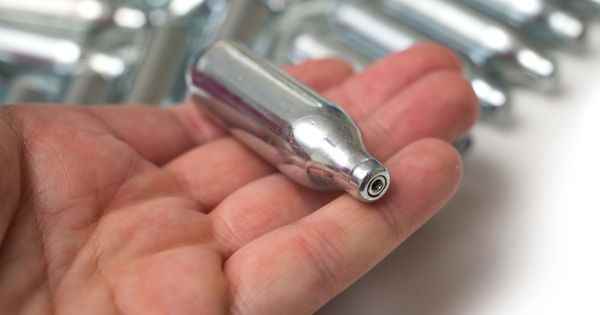Nitrous oxide attracts more and more young people who use it to achieve euphoria. ANSES points to the rising poisonings and the serious consequences resulting from the recreational use of this gas used in the medical and food sectors.
Nitrous oxide, also known as “laughing gas” or “proto” is increasingly consumed for recreational use. Originally, it is used in the medical field in analgesia and anesthesia as well as in the food sector. It is therefore freely available at the supermarket and available on the internet. In recent years, users have been inhaling it to experience a feeling of euphoria. However, this practice can cause serious damage to health.
Marked increase in poisoning cases in 2020
According to last report from ANSES dated November 16, this diversion mainly concerns young adults, in particular students and even adolescents, high school and college students. ANSM and ANSES publish the latest figures with data from the Poison Control Center (CAP) and those from the Centers for Assessment and Information on Drug Dependence-Addictovigilance (CEIP-A).
One comes out “very marked increase in cases of intoxication in 2020 among a young public” : “134 cases reported to poison control centers in 2020 compared to 46 in 2019, 254 reports to addiction monitoring centers in 2020 compared to 47 in 2019”.
Sometimes serious health consequences
We also learn that the majority of poisonings concern young adults with “an increase in the proportion of minors: 20% of cases reported to CAPs in 2020, compared to 13.6% in 2019; 13.4% of cases notified to CEIP-A in 2020 compared to 8.5% in 2018/2019” . We also learn that:
- There is an increasingly large share of regular consumption and no longer only during festive events;
- The quantities consumed vary greatly, from “a few” cartridges to several hundred;
- There is a significant element of abuse and drug dependence;
- An increase in cases of neurological and neuromuscular damage are to be deplored as “a combined sclerosis of the spinal cord, myelopathy leading to paresthesias, gait and balance disorders, convulsions, tremors, sometimes with sequelae that require stays in rehabilitation”;
- Cases of psychiatric disorders have been identified as panic attacks, delirium, confusion, amnesia, agitation, insomnia…;
- Cardiac effects have also been reported such as tachycardia, arterial hypertension, bradycardia and chest pain.
Health agencies recommend calling emergency services (15 or 112), contacting your Poison Control Center or your Addiction Vigilance Center, “to declare any serious case linked to abuse, dependence or misuse with nitrous oxide on the site signalement-sante.gouv.fr“. It is also recommended to turn to a doctor or a structure specialized in the management of addictions in young people such as consulting young consumers.
